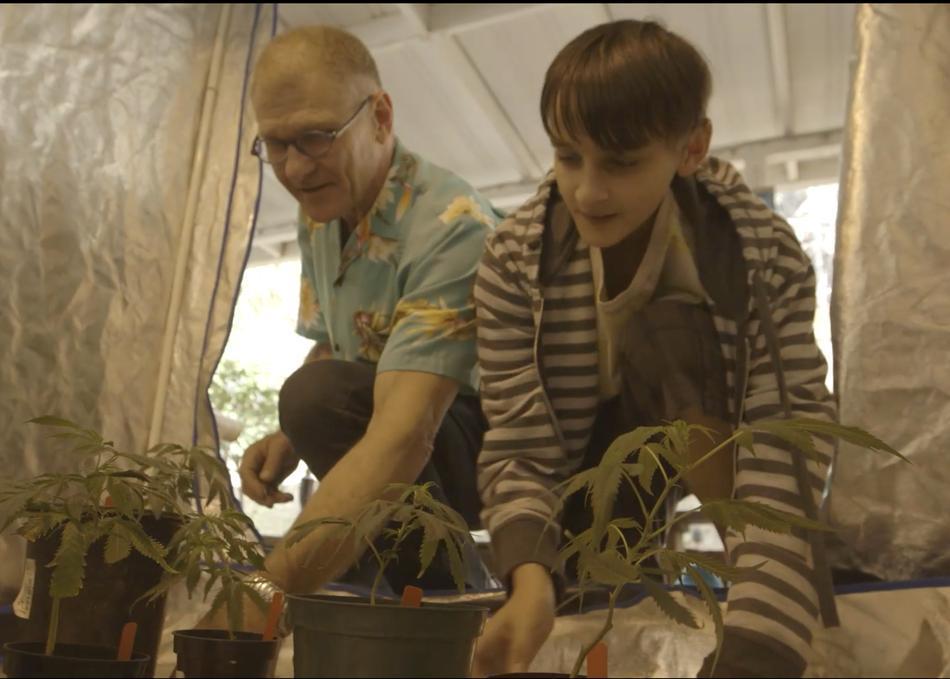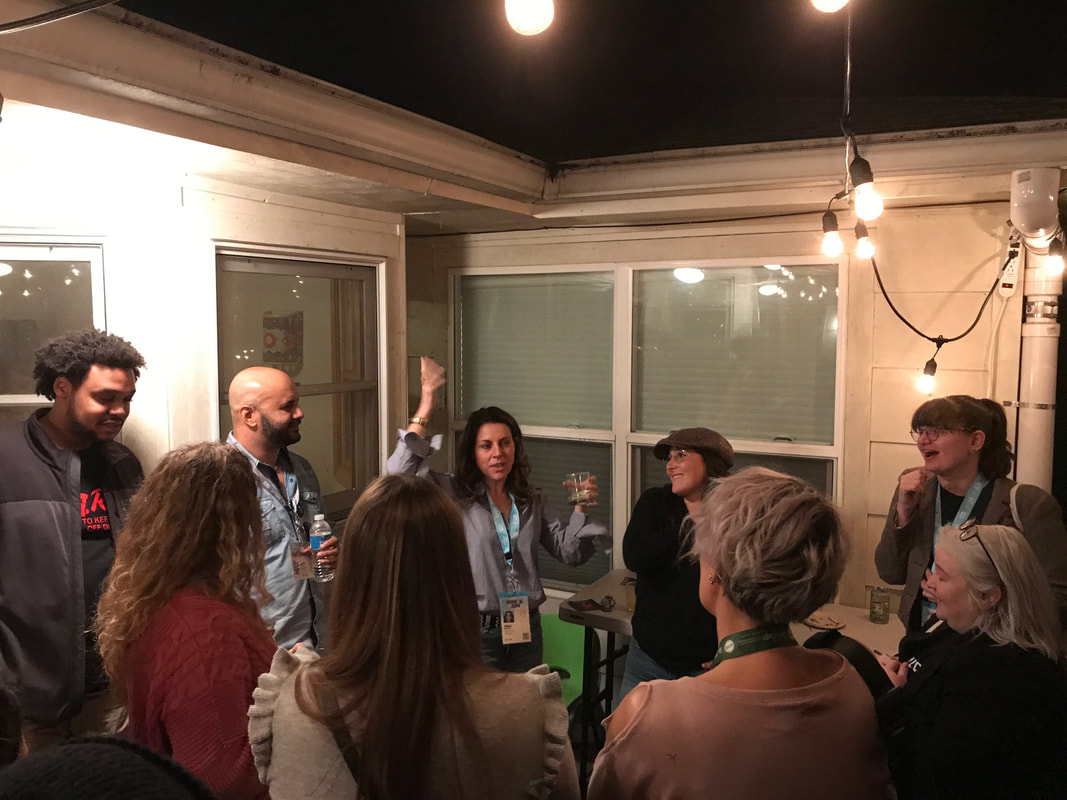|
Filmmakers document remarkable transformations in afflicted kids, slam Attorney General Jeff Sessions for anti-pot stance: 'This film could have the power to change a politician's heart and mind' To describe Ricki Lake and Abby Epstein as excited about their latest documentary would be an underestimate. "We really feel like we have a gem on our hands and the timing could not be more perfect," Lake enthuses when we meet in the lounge of the Driskill Hotel in downtown Austin. "This movie really does have the opportunity to change things." The movie is Weed the People, which premiered Sunday at SXSW in the Documentary Feature Competition category. Epstein directed and Lake executive-produced the film which explores the cases of children suffering from cancer whose health improved dramatically through treatment with cannabis oils. I do think it's a hopeful film. It takes you on a journey -- I think the whole audience is moved to tears multiple times. Weed the People argues marijuana prohibition is both misguided and inhumane, especially in view of the benefit it may provide to kids for whom chemotherapy has been ineffective or ruinous to their bodies. "You've got these parents who are looking for everything. They are not getting the results they want from what they're being offered through the standard medical system. And when you start looking for everything cannabis comes up," Epstein tells Nonfictionfilm.com. "We know cannabis kills cancer in the test-tube or represses tumor growth." The American Cancer Society echoes that assessment. "Scientists reported that THC and other cannabinoids such as CBD slow growth and/or cause death in certain types of cancer cells growing in lab dishes. Some animal studies also suggest certain cannabinoids may slow growth and reduce spread of some forms of cancer," according to the ACS website. "There have been some early clinical trials of cannabinoids in treating cancer in humans and more studies are planned. While the studies so far have shown that cannabinoids can be safe in treating cancer, they do not show that they help control or cure the disease." Some of the parents of children in the film might disagree with that last statement. Tracy and Josh Ryan, for instance, put their baby daughter Sophie on a regimen of THC and CBD after she was diagnosed with a cancerous tumor on her optic pathway. A combination of that treatment and chemotherapy resulted in the tumor almost disappearing, which the baby's doctor felt could not have happened through chemotherapy alone. Lake cites another compelling example from the film. "AJ, the teenager that literally was sent home to die with 20 tumors in his lungs and after four months -- solely on cannabis oil -- the tumors are gone," she marvels. "This boy is no longer getting chemotherapy. You can't use the 'c' word -- the 'cure' word -- but how else do you explain it?" Definitive evidence of the capacity of cannabis to produce cures has been difficult to come by, in part because the federal government classifies marijuana as a "Schedule 1 controlled substance," a designation which the American Cancer Society says "imposes numerous conditions on researchers and deters scientific study of cannabinoids." The group adds, "Federal officials should examine options consistent with federal law for enabling more scientific study on marijuana." "It's pure politics," Epstein says of the obstacles to research. She also sees the hand of pharmaceutical companies in efforts to inhibit medical studies -- after all, marijuana-derived treatments might disrupt sales of their existing medicines. "Western medicine and big pharma, they really have a lock down on how people heal themselves and I think that this plant, mostly because of financial and political reasons, has not been included in any of our healing modalities," she states. "It's only like in the last 10 years that there's been this huge resurgence and rediscovery and unlocking of all of these medicinal properties of the plant that have been locked away for so many years." Indeed, the American Cancer Society notes, "Marijuana has been used in herbal remedies for centuries." Attorney General Jeff Sessions has been a particularly ardent opponent of marijuana legalization, both as a former prosecutor, U.S. senator, and in his current role as the nation's chief law enforcement officer, recently threatening a crackdown on states that have liberalized marijuana consumption laws. The filmmakers are thinking up ways to get Sessions on board with the message of Weed the People.
"When we release the film we might make a video actually for Jeff Sessions inviting him to watch the film and meet with the families," Epstein reveals. "There's something deeply personal and political for Jeff Sessions about marijuana." "It's ridiculous in this day that we've come this far [on acceptance of marijuana] and yet it's still two steps back," Lake adds. "The hypocrisy is obscene." Release plans for Weed the People remain uncertain at the moment as negotiations proceed with potential distributors. "We have a lot of interest so we expect to have some sort of sale," Lake says. "We're strategizing now about calls to action and to really get some kind of grassroots movement happening behind the film. We want to do it right." Epstein agrees. "I think this will have a long life, this film. So we want to prepare for a longer campaign." Lake is clear about her goals for the documentary. "To spread this message and hopefully educate and raise awareness and promote change, major change, policy change," she maintains. "I think it's going to happen." |
AuthorMatthew Carey is a documentary filmmaker and journalist. His work has appeared on Deadline.com, CNN, CNN.com, TheWrap.com, NBCNews.com and in Documentary magazine. |
- Home
- News
- Videos
-
Galleries
- 2019 Tribeca Film Festival
- Full Frame Documentary Film Festival
- 2019 SXSW Film Festival
- SXSW 2018 Gallery
- 2019 Sundance Film Festival
- Outfest 2018 Photo Gallery
- Outfest 2017
- Sundance 2018 Photos
- 2017 LA Film Festival
- 2017 Cannes Film Festival
- Tribeca Film Festival 2017
- SXSW 2017 Gallery
- 2017 Berlin Film Festival
- Sundance 2017 Gallery
- 2016 Los Angeles Film Festival
- Cannes Film Festival 2016
- SXSW 2016 Gallery
- Berlinale 2016 Gallery
- Sundance 2016 Gallery
- Filmmaker Gallery
- About
- Contact
Proudly powered by Weebly
- Home
- News
- Videos
-
Galleries
- 2019 Tribeca Film Festival
- Full Frame Documentary Film Festival
- 2019 SXSW Film Festival
- SXSW 2018 Gallery
- 2019 Sundance Film Festival
- Outfest 2018 Photo Gallery
- Outfest 2017
- Sundance 2018 Photos
- 2017 LA Film Festival
- 2017 Cannes Film Festival
- Tribeca Film Festival 2017
- SXSW 2017 Gallery
- 2017 Berlin Film Festival
- Sundance 2017 Gallery
- 2016 Los Angeles Film Festival
- Cannes Film Festival 2016
- SXSW 2016 Gallery
- Berlinale 2016 Gallery
- Sundance 2016 Gallery
- Filmmaker Gallery
- About
- Contact





 RSS Feed
RSS Feed